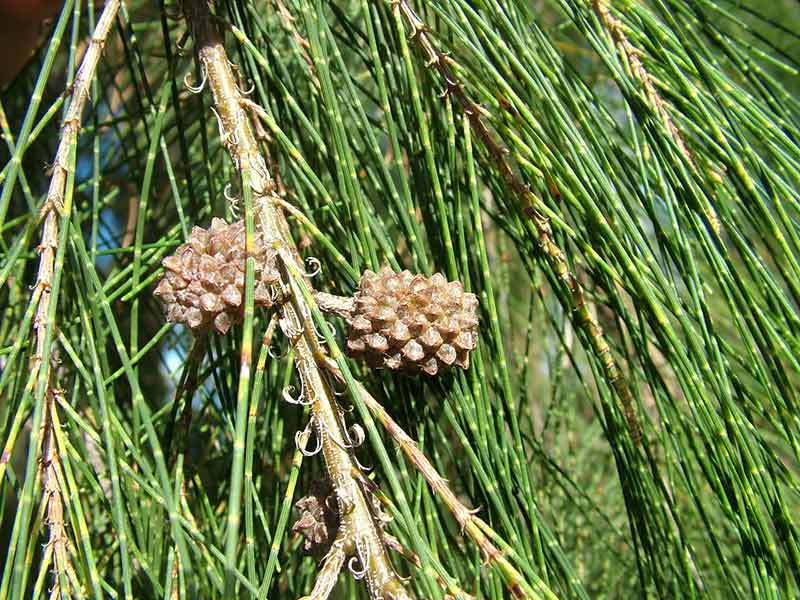A group of youth in Kilifi are earning from a native Australian tree in both the sale of tree poles and through planting it as a wind break for coastal hotels and residences, In a novel business model that gives the group planting land to grow the tree in return for its utility to hoteliers and residents while it grows.
The tree, known as Casuarina or whistling pin, does well in coastal areas and has also been adopted successfully in central Kenya, driven by the many fencing projects in the area.
Though the uptake of the tree by the farmers in coastal areas hasn’t been brisk, the Janajina Youth group has been overwhelmed in seeking to supply the many companies consulting them for fencing poles. “The companies, especially game parks and hotels are very particular of the Casuarina tree, since it can withstand mites and can survive for even five years as poles,” said Juma Abdalla, the chair of Janajina Youth group.
The trees which start flowering after three years, produce on average six poles each, with each pole selling on average at Sh 2,500. The group, which has been in business for 8 years, has managed to sell over 5,000 poles and now operates a fully fledged pole shop where even schools, churches and individual farmers now come to buy miniature poles.
The group contracts with big hotels and building owners to plant and tend to the trees as hedges to be wind breakers, as strong winds at times wreck havoc in the area.
Mystical International Hotel in Kilifi is one of the clients who gets the trees planted by the group then felled and sold to pole buyers as more trees are replanted to control the wind.
In a symbiotic move, the group buys the seedlings, plant and tends to the trees until they become mature, and sells the poles getting 80 per cent of the returns, with the hotel getting the rest. “
Although our hotel is located near the ocean, which attracts many tourists we had been struggling with strong winds that at times rip off some of the makeshift tents and housing we have put up. We put all sorts of barriers but it was still temporary, until the group fronted the idea to us and though skeptical at first, we have come to appreciate their prowess in breaking the wind,” said Saif Bedawi, the manager of the hotel.
The trees have strong roots that allow them to withstand the strongest of hails. The deep penetrating roots are also known to fix nitrogen in the soil which is an important nutrient in crop development and growth.
But with the success of the plants registering roaring success in areas previously regarded as hostile for the optimum growth of the tree, like the Mount Kenya Region, the tree now promises widespread benefits across the region if adopted by farmers: not only helping in nitrogen fixation but preparing farmers for changing weather patterns, rains and strong winds.
Families in one small village in India know too well the immeasurable benefits of the whistling pine after they were spared during the catastrophic tsunami tragedy.
Two years before the tsunami, drought-stricken farmers in a village on the southern coast of India went into a Casuarina tree planting frenzy as a way of appeasing the gods. When the tsunami tragedy struck, the casuarina trees that had been planted to appease the weather gods saved the lush green village of Naluvedapathy.
Of the nearly 8,000 people who died in the larger state, including 6,000 in one fishing village, only seven were from Naluvedapathy village where the casuarina trees, which numbered more than 60,000, took the brunt of the tsunami waves as they swept in.
The giant waves inundated dozens of thatched-roof houses in the village as they swept inland to a distance of a kilometer from the shore. But the casuarina trees had considerably weakened the waves and reduced the impact. Authorities in the village now proudly showcase the benefits of tree plantation in mitigating the impact of natural disasters, pointing to Naluvedapathy village as a reference point.
 Fenesi.com Start, Run and Grow Your Business In Kenya
Fenesi.com Start, Run and Grow Your Business In Kenya





Hi Bob. Thanks for the informative article. I’d like to get in touch with JanaJina Youth Group regarding casuarina. Could you kindly assist? I’ll be grateful.